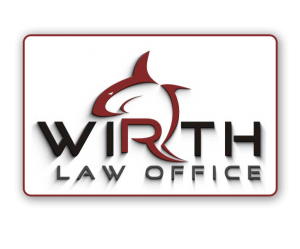
Video Transcribed: What are the major crimes of the Major Crimes Act of 1885? I’m Tulsa attorney James Wirth, and we’re about to talk about the Major Crimes Act.
There’s been a lot going on with regard to the Major Crimes Act. You might be hearing about it a little bit in the media because of the United States Supreme Court decision in McGirt, and that’s bringing it back to the forefront because the McGirt case is a huge decision for the state of Oklahoma.
It essentially determined that the Muskogee Creek Nation was never disestablished. So most of Tulsa and the surrounding counties are actually still on the reservation. And the precedent in McGirt is almost as likely to be equally applicable to the other five civilized tribes, which means that about half of Oklahoma, the Northeast half of Oklahoma is all tribal reservation land.
And particularly in the McGirt v Oklahoma, we had somebody that was charged with a sexual crime against a child, and that is part of a Major Crimes Act. The Major Crimes Act says that all of those crimes that occur on tribal land or reservation land have to be charged in federal court, not state court.
So anybody that was convicted of a major crime in what is now considered to be Indian land, that was charged in state court, is likely to have those charges or potentially to have those charges thrown out and to be retried in federal court, just like is happening with McGirt and Murphy and has already happened with a handful of other cases and likely to happen with at least hundreds of other cases.

It’s important to know what is on the major crimes list that’s required to be charged in federal court. Originally, the list was in 1885, but have since been expanded.
The expanded list includes murder, manslaughter, kidnapping, maiming, a felony under chapter 109A, which actually deals with sexual abuse, incest, a felony assault under section 113, which deals with intent to murder with a weapon, an assault against an individual who’s not yet attained the age of 16, felony child abuse or neglect, arson, burglary, robbery, and a felony under section 661, which deals with larceny or theft.
So if any of those offenses are committed either by a tribal member or against a tribal member on what is now considered to be tribal land, cannot be charged in state court, has to be charged in federal court.
And if it happened at any time in the past where it was convicted or charged in state court, those are likely to be voided judgments or potentially judgments that can be thrown out, leading to either people to go free or for new prosecution in federal court. So it’s important to know those, and that’s the crimes under the Major Crimes Act.
But, although crimes not in the Major Crimes Act were not involved in the McGirt case or in the Murphy case, the precedent set in the McGirt case that the tribal boundaries from 1866 were never disestablished triggers another list of crimes, which means that for anybody charged with those crimes in Northeast Oklahoma, the part that’s now considered reservation land, if it’s not under the Major Crimes Act, which means it must be charged in federal court, it still can’t be charged in state court, has to be charged in tribal court.
If you have any questions about that, if you know anybody involved in those scenarios that may need to file for relief or this may affect them, you can contact my office. We may be able to help you with that or at least answer some questions for you. To do that, go to makelaweasy.com.